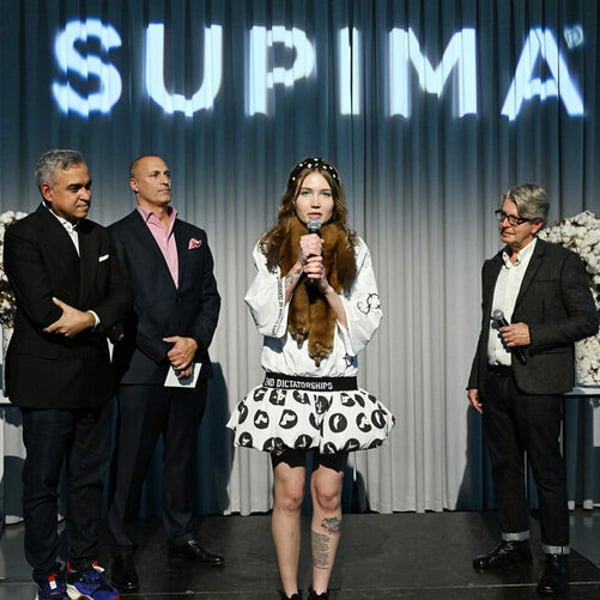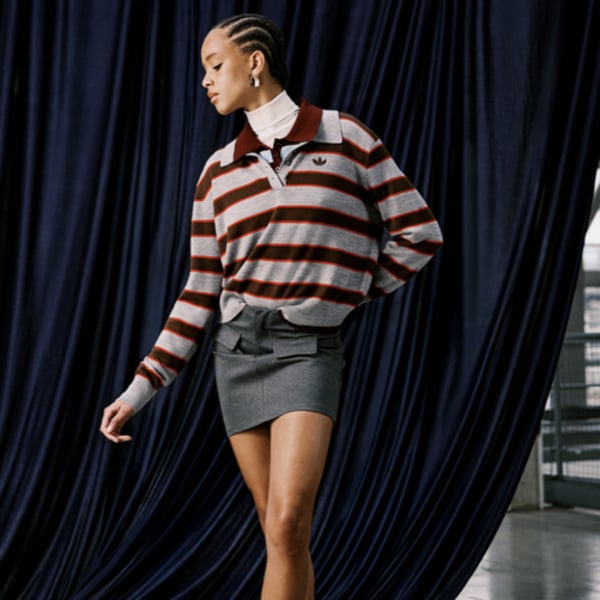“I’ll never forget the moment that David Letterman licked the body cream off my arm,” said Jessica Simpson from her home office in Calabasas, California.
It was 2004 and the pop star was promoting her first-ever personal care line, an edible range of lotions and shimmer powders called Dessert Beauty, created by the entrepreneur Randi Shinder and endorsed by Simpson in a series of highly publicised Sephora visits. (Simpson told People Magazine in 2006 and in our interview that she did not own the brand but “was just something that I was promoting and a part of endorsing.”) The line went bust in 2006, but Simpson admitted she still thinks about it “all the time” as an early lesson in beauty marketing. “It taught me that people want to be complimented for smelling beautiful.”
Fans of Simpson’s everygirl magic will soon have another chance to smell like Simpson’s sugary dreams. After a Lifetime movie’s worth of obstacles — substance addiction, breakups, bankruptcy — Simpson is re-entering the fragrance market with Mystic Canyon, her first new scent since 2020. With notes of vanilla and orchid, Mystic Canyon retails for $35 for 30mL and $60 for 100mL. Parlux, the manufacturer behind celebrity scents for the likes of Billie Eilish and Drake as well Simpson’s previous line, is producing the range.
When Simpson first launched an eau de parfum in 2008 — Jessica Simpson Fancy, inspired by a song recommendation from the singer Willie Nelson — it made $6.5 million in eight weeks and helped boost Parlux’s bottom line by 43 percent, according to earnings calls. But the market and its players have radically changed in those 12 years, and Simpson is facing competition not just from fellow pop idols but also from indie fragrance houses with scents like Glossier You and Sol de Janeiro’s Cheirosa ’62 that have become as familiar to Gen-Z shoppers as Simpson’s pop songs were to Millennials and Gen X.
Simpson is not deterred. “I’m going back to what works for me. This smells the way my emotions feel right now. That is always how my greatest successes have happened.”
A Mogul in the Making
Simpson was a media punching bag for much of her career, derided as “dumb” by the same men who wanted to date her and women who wanted to dress like her. “I was just very young and very enthusiastic, unguarded,” said Simpson of her Y2K persona, which beamed into millions of houses first on MTV for her music and then via her reality show “Newlyweds.” A now-infamous incident thinking “chicken of the sea” wasn’t tuna but poultry sealed the deal on public opinion.
After Simpson’s first foray into beauty with Dessert, she recorded another album and then got dumped by her record label, Sony Nashville. “It was 2008 and I had the number one country album and still, they dropped me… that really made me just focus on the Jessica Simpson Collection and create that.” The brand, created in partnership with fashion entrepreneur Vince Camuto, launched with cowboy boots inspired by her Dukes of Hazzard character Daisy Duke and Fancy, which spawned five spinoff fragrances. By 2014, it was generating a billion dollars in revenue.
After Camuto’s death in 2015, the brand was acquired by licensing company Sequential Brands for $117.5 million in cash. But under Sequential’s ownership, the line faltered due to mismanagement and overlicensing. Sequential filed for bankruptcy in August of 2021; in November of that year, Simpson and her family bought back her stake for $65 million.
Customers are still curious about Brand Simpson: Her candid 2020 memoir, Open Book, sold half a million copies in 14 weeks, landing it on the New York Times bestseller list. (The New Yorker called it a “mesmerising account” of her spotlit life.) Simpson has about 10 million followers across social media platforms; her TikTok videos garner an average of 100,000 views, with some reaching millions. This is not a guarantee of fragrance sales, but it is an indication that Simpson’s audience is large, engaged, and spread across multiple channels, including Instagram and YouTube.
Buying back her name, says Simpson, represents a part of rebuilding her life as an independent adult. “Even when I was [in rehab], I knew your name was the best thing you’ve got.”
Spurning the “Cool Factor”
Simpson is one of many celebrity founders in beauty. While Rhode and Rare Beauty, founded by Hailey Bieber and Selena Gomez respectively, rest on premium positioning and a curated product edit, Simpson is used to working for the everywoman. She’s sold shoes, handbags, clothing and fragrance sold through mass retailers at price points average shoppers can afford.
“I’m a preacher’s daughter. My dad made $30,000 a year. I know what it’s like to go to discount stores and really search for something great. I knew if we made those great things for people, we would succeed,” she said.
For Simpson’s brand of beauty, there’s a huge opportunity. Not at Sephora but JC Penney. And because the Jessica Simpson Collection has established infrastructure at these mass hubs, she has an advantage over new beauty brands. Her team already knows who to call about shelf space.
She said she admires the likes of Ralph Lauren and Armani because they’ve built broader lifestyle brands without losing their identities, and she follows celebrity luxury brands with interest. “But our goal was never to be at Fashion Week and to be the coolest brand. It was to be really relatable. And it doesn’t matter how famous you are,” she said “We all are trying to save money right now!”
The Phoenix at Walmart
Once Simpson decided her new fragrance would be “a signal flare” for the Jessica Simpson Collection brand’s reemergence, she began working on a scent profile that would be approachable enough for the masses, but distinct enough that people would associate it with the singer herself.
“I’m single again,” she said, referring to her recent divorce from football player Eric Johnson. “So I’m thinking, what can I wear on a first date that will be memorable to somebody that I’m interested in?”
In addition to vanilla and creamy orchid, Mystic Canyon was inspired by the metallic twang of an old guitar. The bottle takes cues from Simpson’s stash of vintage jewellery, hammered silver and carved turquoise, most sourced from her home state of Texas.
“People say to me, ‘You’re country.’ But it’s not country music; it’s not country style or perfume. It’s Americana. It’s classic and it’s not one region. I’m making this fragrance line for all of us,” she said.
Is there room for Simpson’s vision of one nation under vanilla bean accord? Simpson says her Calabasas friends enjoy it just as much as her Texas family. She is confident shoppers will, too. “It gives off a romantic, grounded feeling that gets you noticed a little, but not in an overpowering way,” she says. She also sees the brand as being rooted equally in beauty, apparel and lifestyle, with a full home collection including wallpaper launching later this year.
Simpson is careful to point out that her fragrance’s softness shouldn’t be confused for weakness — or with a passive stance on becoming one of 2026’s most auspicious beauty entrepreneurs.
“I love being the underdog,” she said. “I love being the little engine, because I don’t lose endurance and I haven’t gotten to the top.”
She pauses. “Yet. Because the reality is, I would not have a business if I’d gotten everything I wanted as a celebrity.”
Sign up to The Business of Beauty newsletter, your complimentary, must-read source for the day’s most important beauty and wellness news and analysis.


